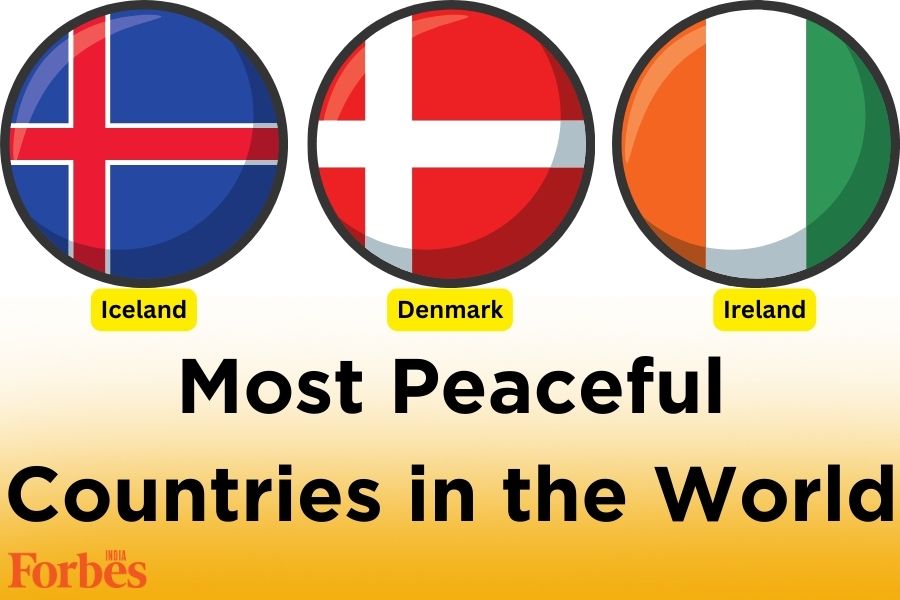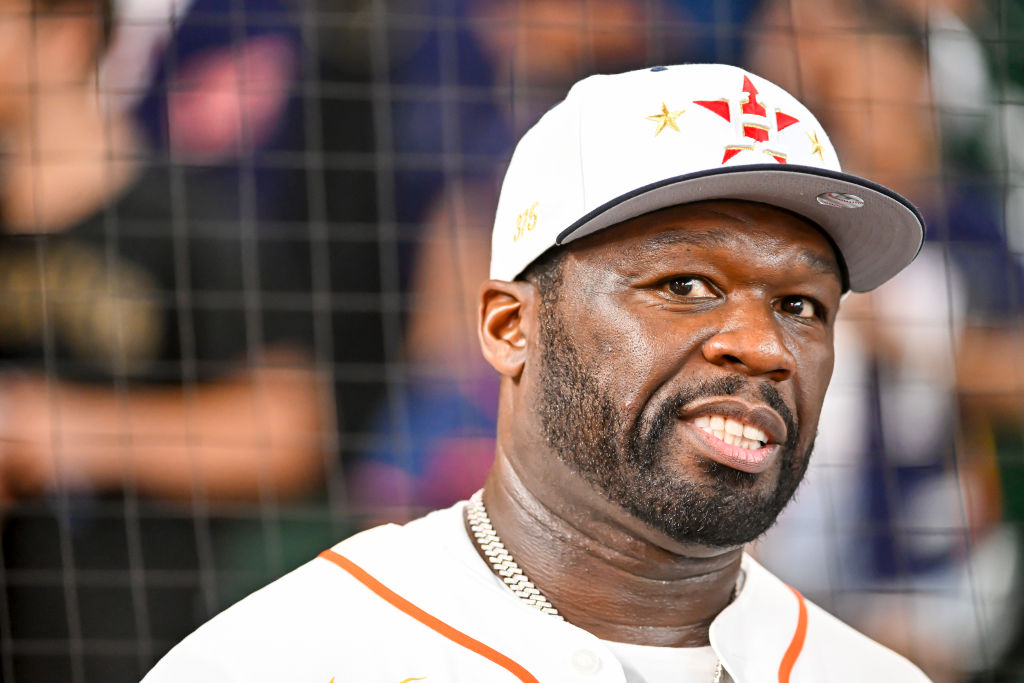World
Top 10 Most Peaceful Countries In The World – Forbes India

Certain countries shine for their dedication to peace and steadiness in a world frequently marked by conflict and instability, as the Global Peace Index (GPI) shows. The GPI is a report created by the Institute for Economics & Peace that ranks 163 independent states and territories based on their levels of peacefulness. Its purpose is to find out the most peaceful countries in the world and how every region is doing overall.
Methodology for ranking in the Global Peace Index (GPI)
A country’s peacefulness is measured by a composite index of 23 indicators, each rated on a scale of 1 to 5. The lower the score, the greater the peace within the country. Further, GPI evaluates nations based on three key domains:
- Societal safety and security
- Ongoing domestic and international conflict
- Militarisation
In this article, we’ll take a closer look at the top 10 peaceful countries, many of which are in Europe, known for their peace and tranquillity.
Top 10 peaceful countries in the world
Let’s explore the highest-ranked peaceful countries with data from Vision of Humanity as of 2023.
| Rank | Country | Score (1-5) | Region |
|---|---|---|---|
| #1 | Iceland | 1.124 | Europe |
| #2 | Denmark | 1.31 | Europe |
| #3 | Ireland | 1.312 | Europe |
| #4 | New Zealand | 1.313 | Asia-Pacific |
| #5 | Austria | 1.316 | Europe |
| #6 | Singapore | 1.332 | Asia-Pacific |
| #7 | Portugal | 1.333 | Europe |
| #8 | Slovenia | 1.334 | Europe |
| #9 | Japan | 1.336 | Asia-Pacific |
| #10 | Switzerland | 1.339 | Europe |
It’s time for a closer look at the top peaceful countries in the world. Note: Each country’s population and GDP are from the World Bank as of 2022, and the area data is as of 2021.
Iceland
- Population: 0.382 million
- GDP: $28,064.53 million
- Area: 100,830 km²
Iceland is a tranquil and enchanting country positioned in the North Atlantic Ocean, between the continents of Europe and North America. Renowned for its breathtaking natural landscapes and forward-thinking social policies, Iceland has been the most peaceful country since 2008. Unlike many nations, Iceland doesn’t have a standing army and relies on its small coast guard and international agreements for defence.
Denmark
- Population: 5.903 million
- GDP: $400,167.20 million
- Area: 40,000 km²
Denmark, a Scandinavian nation known for its rich history, robust economy, and commitment to sustainability and innovation, ranks among the top peaceful countries in the world. The population is primarily Danish, with significant ethnic communities including Turkish, Polish, Romanian, German, and Iraqi individuals. Denmark functions as a parliamentary constitutional monarchy, with Copenhagen serving as its central hub for culture, economy, and governance.
Ireland
- Population: 5.127 million
- GDP: $533,140.01 million
- Area: 68,890 km²
Ireland, known for its stable democracy and respect for political and civil liberties, has grappled with political instability and violence, especially during the Northern Ireland conflict. However, recent years have seen notable progress, earning Ireland recognition as one of the world’s most peaceful countries in 2023. Its captivating blend of ancient and modern influences, scenic beauty, and welcoming people make it a favoured destination for global travellers.
New Zealand
- Population: 5.124 million
- GDP: $248,101.71 million
- Area: 263,310 km²
New Zealand, a small yet influential country in the South Pacific, ranks among the world’s peaceful nations. It’s recognised for its democratic principles, featuring free and fair elections, minimal foreign influence, and substantial political rights and civil liberties. Interestingly, the country’s police force operates without personal firearms, reflecting its low rates of violent crime.
Austria
- Population: 9.04 million
- GDP: $470,941.93 million
- Area: 82,520 km²
Austria, situated in Central Europe and bordered by eight countries, is celebrated for its breathtaking natural landscapes and numerous world-renowned museums, galleries, and theatres. It is renowned for its annual music festivals, such as the Salzburg Festival and the Vienna Philharmonic Orchestra. Once the centre of the Austro-Hungarian Empire, Austria became a small republic after World War I. Today, it’s a federal republic with a president as head of state and a chancellor as head of government.
Singapore:
- Population: 5.63 million
- GDP: $466,788.43 million
- Area: 718 km²
Singapore is a thriving island city-state in Southeast Asia, just off the southern end of the Malay Peninsula. It boasts a dynamic metropolis, excellent infrastructure, and a well-integrated transport network. The country’s strategic location, political stability, and robust economy have made it a significant hub for international trade, finance, and tourism and among the most peaceful in the world. Additionally, Singapore has adopted a parliamentary democracy system since gaining independence in 1965.
Portugal
- Population: 10.40 million
- GDP: $255,196.66 million
- Area: 91,605.6 km²
Lisbon is renowned for its dynamic culture, famed footballer Cristiano Ronaldo, and hosting the world’s oldest continuously operating bookstore. Portugal’s rich history is reflected in its well-preserved historic sites, including medieval castles and charming cobblestone villages. As a member of the European Union, Portugal has seen notable economic growth, especially in tourism, technology, and renewable energy. Its dedication to peace, safety, and social stability has consistently positioned it among the most peaceful countries in the world.
Slovenia
- Population: 2.11 million
- GDP: $60,063.48 million
- Area: 20,136.4 km²
Slovakia shares borders with Poland, Ukraine, Hungary, Austria, and the Czech Republic. Its history is closely tied to the Hungarian Kingdom and Czechoslovakia, culminating in independence in 1993. Known for its peaceful environment, stable politics, and low crime rates, Slovakia is a member of the European Union and NATO, which enhances its stability and security.
Japan
- Population: 125.12 million
- GDP: $4,256,410.76 million
- Area: 364,500 km²
As a global technology leader, Japan’s companies are at the forefront of producing advanced electronics, automobiles, and machinery. Additionally, Japan stands out as a peaceful country with a low crime rate and a solid dedication to social harmony. Japan uniquely combines traditional and modern elements. It is known for its traditional arts, such as tea ceremonies, calligraphy, flower arrangements, and modern pop culture, including anime, manga, and video games.
Switzerland
- Population: 8.77 million
- GDP: $818,426.55 million
- Area: 39,509.6 km²
Switzerland, officially the Swiss Confederation, is a small landlocked country in central Europe known for its commitment to peace, security, and international cooperation. Its policy of neutrality, stable democracy, and active role in the United Nations highlights its peaceful reputation. Additionally, Switzerland has multiple official languages, including Swiss German, French, and Italian, reflecting its diverse linguistic and cultural heritage.
FAQ’s
Is India a peaceful country?India is not considered one of the most peaceful countries in the world, as it ranks relatively low in the Global Peace Index (GPI) compared to other countries. In the GPI 2023, India ranked 126th out of 163 countries, climbing nine ranks from its previous position.What are the least Peaceful countries?According to the 2023 GPI, Afghanistan, Yemen, Syria, South Sudan, and the Democratic Republic of the Congo are the least peaceful countries in the world.










